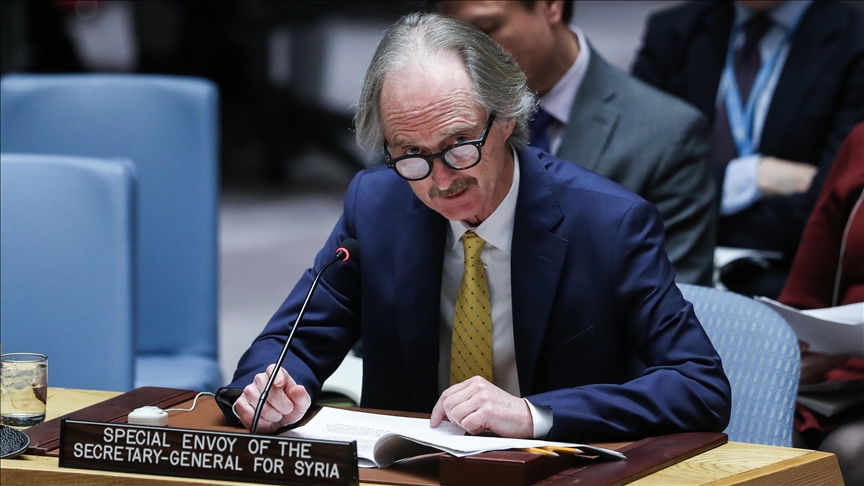HAMILTON, Canada
UN Special Envoy for Syria Geir Pedersen on Thursday told the Security Council that Syrian authorities in Damascus are grappling with “a massive legacy of war and autocracy.”
“They have inherited not just the ruins of shattered buildings, but the deeper wreckage of a battered social fabric, decayed institutions, and a hollowed-out economy,” he said. “Syria urgently requires international material assistance on a scale commensurate with its needs and ambition.”
Calling for wider support from the regional and global community, Pedersen said: “We need to see the private sector’s footprint back in Syria, including through nurturing Syria’s domestic private sector, to ensure that what exists survives and thrives.”
“To achieve this will require more support from the region and the wider international community, and sustained sanctions and export controls relief, reassurance to banks and companies, and an accelerated path of domestic reforms,” he said.
On Israel’s attacks on Syria, Pedersen stressed that September “has seen further intervention by Israel, including Syrian state media reporting an incident of Israel killing several Syrian soldiers, and Israeli commandos landing south of Damascus, as well as further strikes in early September.”
“This kind of external intervention is unacceptable and must stop,” he stressed, urging respect for Syria’s sovereignty, independence, and territorial integrity, while respecting the 1974 disengagement agreement.
Pedersen emphasized the importance of justice and elections.
“My recent visit to Damascus also further cemented my conviction of the centrality of transitional justice to the success of the entire political transition,” he said, noting the UN’s readiness to assist national commissions.
He added that the Syrian people are “attempting a transition in the face of challenges and realities as complex and difficult as have been faced almost anywhere,” but stressed that “unity is within reach, and success against the odds is possible.”
Highlighting the severity of humanitarian needs, UN relief chief Tom Fletcher said: “Despite the profound changes underway in Syria, and the opportunities these have generated, Syria remains by any metric one of the largest humanitarian emergencies globally.”
“More than 70% of the population needs some form of humanitarian aid,” he said. “More than 9 million people are acutely food insecure,” and millions remain displaced inside and outside the country.
Fletcher welcomed limited progress, including UN access to new communities and sanction easing, but warned: “Our humanitarian appeal this year is only 18% funded, meaning we can reach just a fraction of those in need.”
“This time next year, I want to report that we are substantially scaling down our emergency humanitarian operations in Syria,” Fletcher said. “Not because funding cuts have forced our hand, but precisely because the international community has made the necessary investments in Syria’s future.”
